
Politics
08:50, 22-Jul-2017
Palestinian President Abbas freezes contact with Israel
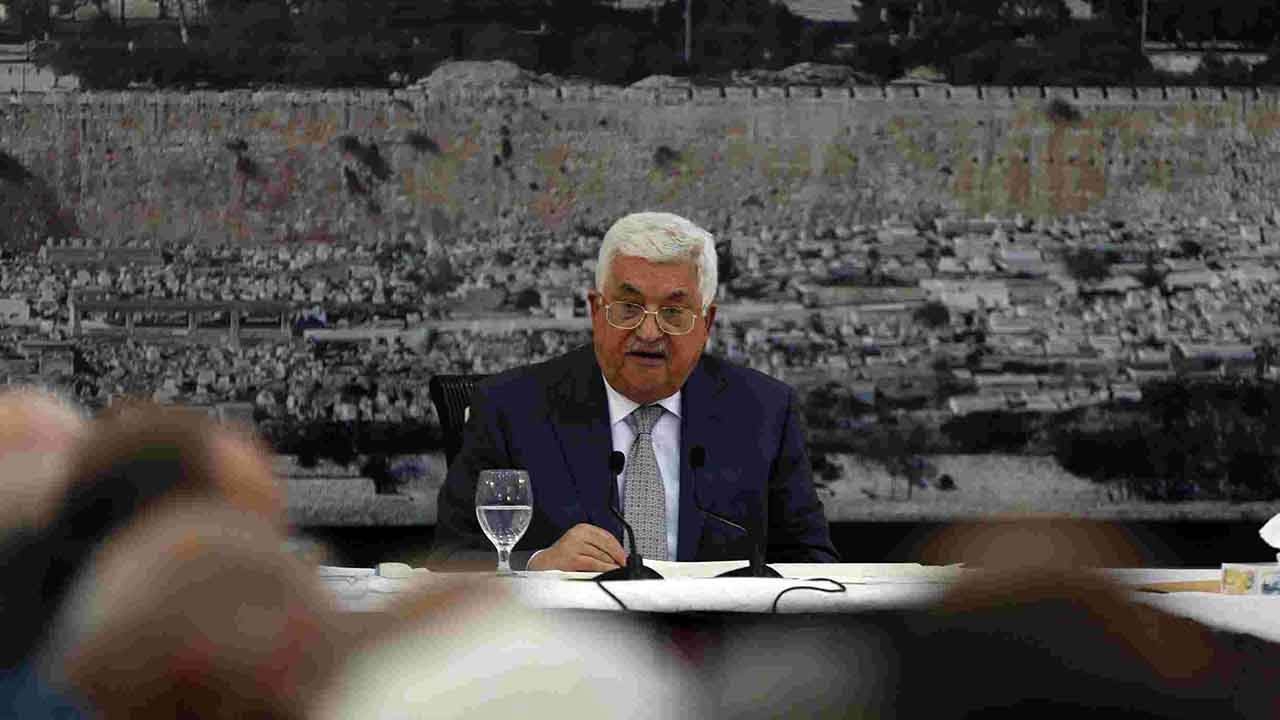
Palestinian President Mahmoud Abbas announced Friday a freeze of all contact with Israel after at least three Palestinians were killed in a dispute over a contested shrine.
"We reject the so-called e-gates as political measures that are covered by a false security cover," Abbas said in a speech after an emergency meeting of the Palestinian leadership.
The meeting included members of the executive committee of the Palestine Liberation Organization, the central committee of its Fatah movement and security chiefs.
Abbas said that these gates "aim to impose control on Al-Aqsa Mosque and evade the peace process and its entitlements."
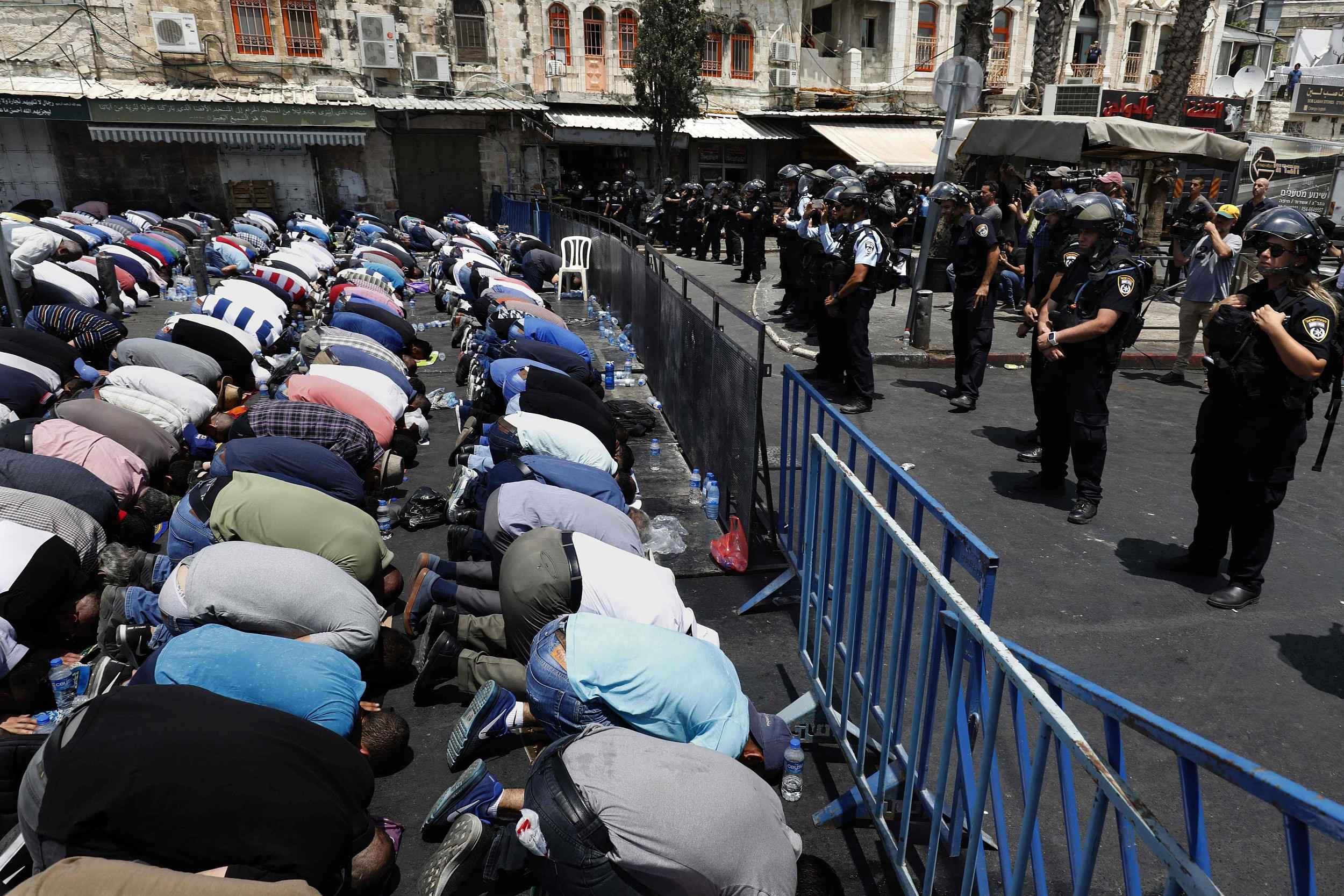
Palestinian Muslim worshippers pray outside Damascus Gate, a main entrance to Jerusalem's Old City, on July 21, 2017. /VCG Photo
Palestinian Muslim worshippers pray outside Damascus Gate, a main entrance to Jerusalem's Old City, on July 21, 2017. /VCG Photo
He called East Jerusalem their "eternal capital," and said he will "continue to protect it and work for its liberation from the occupation."
Abbas added that the Palestinian leadership will remain adjourned until further notice, urging Jordan, Saudi Arabia, Egypt, the Arab League, UN and other world powers "to shoulder their responsibility towards Jerusalem."
He called on Palestinian factions, especially Islamic Hamas Movement to "unite the compass towards Jerusalem and Al-Aqsa and defend our sanctities and our national project."
Abbas urged Hamas to respond to Al-Aqsa's appeal and dissolve the administrative committee it formed that manage the affairs of the Gaza Strip, so as to enable the consensus government to carry out its tasks.
He also pointed to a goal of allocating 25 million US dollars to strengthen the steadfastness of Jerusalem residents, citizens, institutions, merchants and others.
Abbas called for unity effort of Palestinian businessmen and other national institutions, as well as the Arab and Islamic funds related to Jerusalem towards the goal.
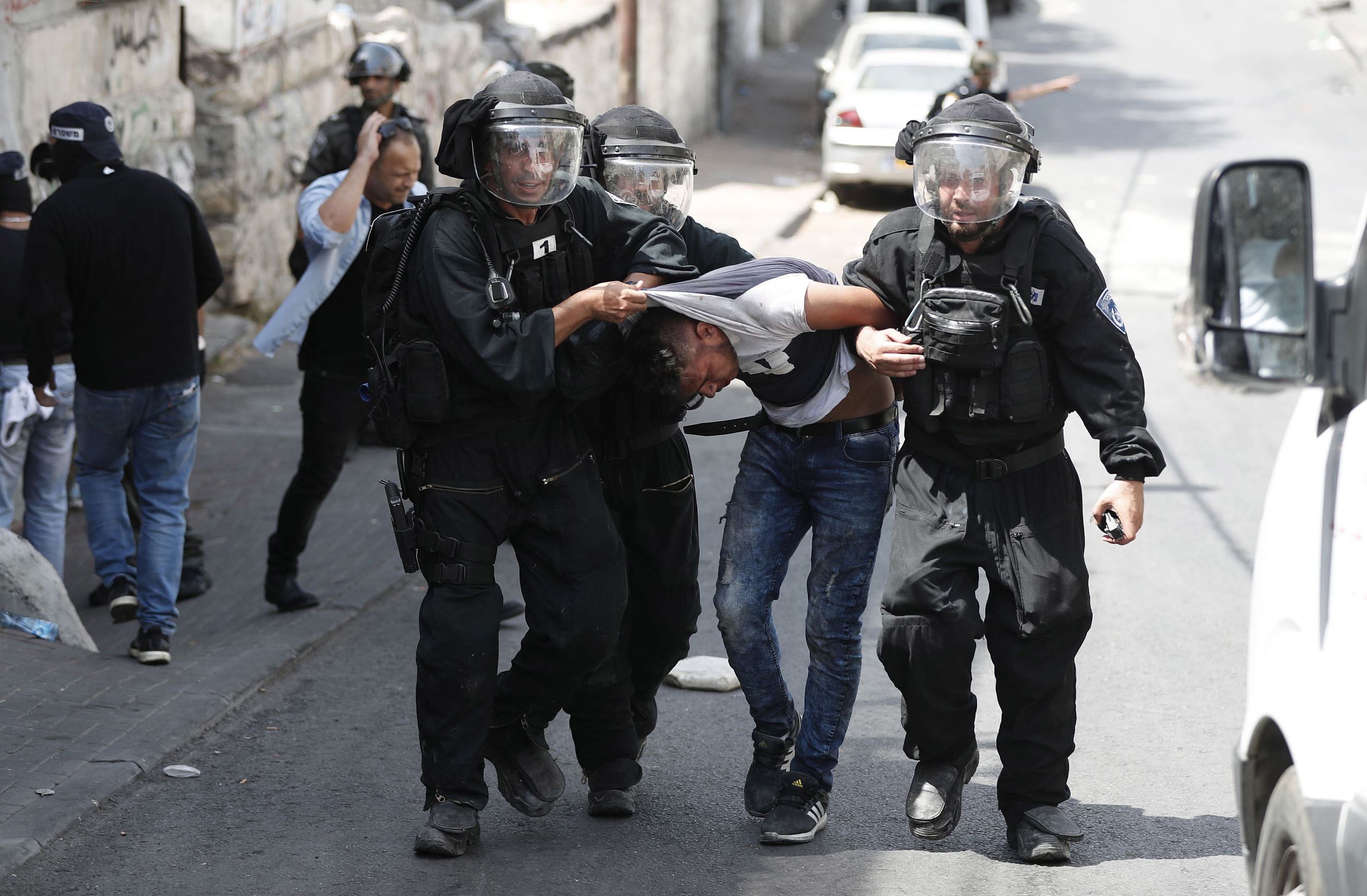
Israeli security forces detain a Palestinian protester during clashes following prayers outside Jerusalem's Old City on July 21, 2017. /VCG Photo
Israeli security forces detain a Palestinian protester during clashes following prayers outside Jerusalem's Old City on July 21, 2017. /VCG Photo
The Palestinian Health Ministry said the three people who were killed and the nearly 400 others injured happened during clashes with Israeli forces after the Friday prayers.
The first two were killed by Israeli gunfire in East Jerusalem and the third succumbed to his wounds in a nearby town of Abu Dis.
Palestinians requested a day of rage protesting against Israel's decision to enforce new security measures at the entrance of Al-Aqsa Mosque, including the installation of metal detectors and surveillance cameras.
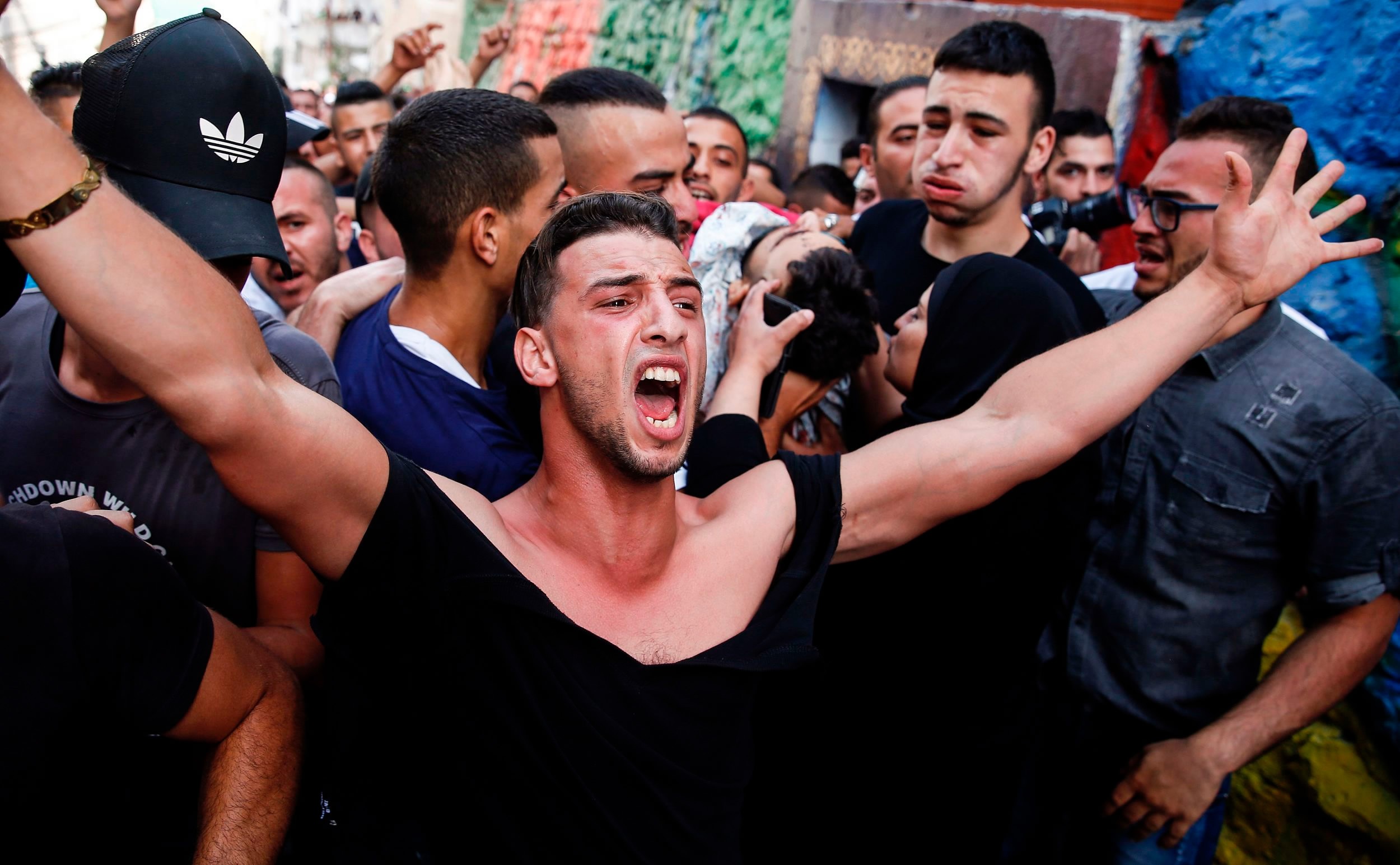
A Palestinian mourns as others behind him carry the body of Mohammed Abu Ghannam, who was shot dead during clashes with Israeli forces, at his funeral in Al-Tur area of east Jerusalem, on July 21, 2017. /VCG Photo
A Palestinian mourns as others behind him carry the body of Mohammed Abu Ghannam, who was shot dead during clashes with Israeli forces, at his funeral in Al-Tur area of east Jerusalem, on July 21, 2017. /VCG Photo
The heighten security measures came in the aftermath of a deadly shooting attack last Friday, which killed three Palestinians with Israeli citizenship and two Israeli security officers in the yards of the Al-Aqsa Mosque compound.
Israeli forces fired live ammunition, rubber-coated bullets, tear gas and stun grenades to disperse protestors in different West Bank cities and towns.
Nearly 400 Palestinians were also injured in the clashes, according the Palestinian Red Crescent Society and the Health Ministry.
In Gaza, two Palestinian demonstrators were lightly injured by Israeli gunfire east of the southern Gaza Strip city of Khan Younis.
Chief of the Islamic Hamas movement Ismail Haneya, who joined the rally in Gaza City, said in a public speech that "the Palestinian resistance is the only means that would deter the occupation from carrying out such measures against Al-Aqsa Mosque."
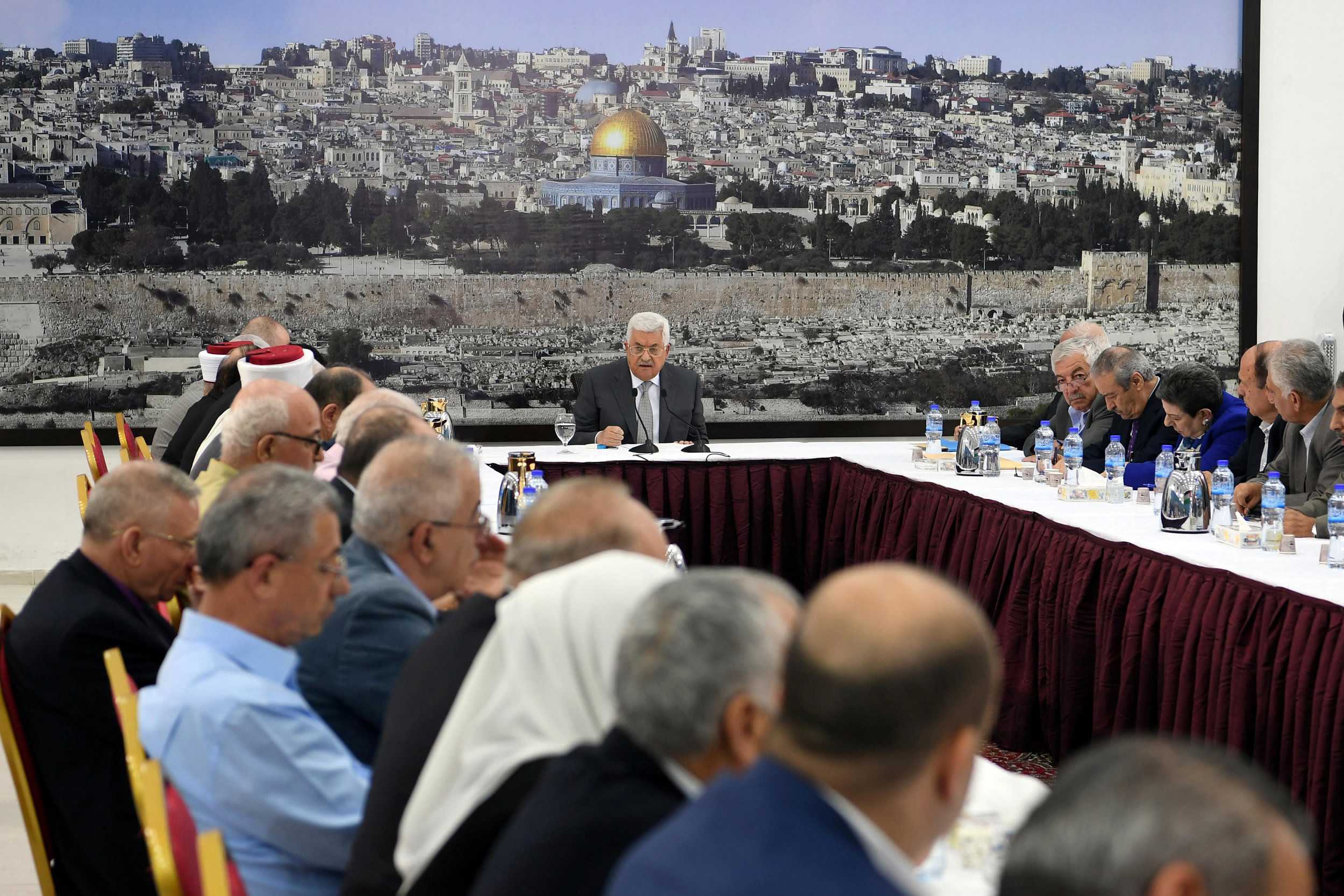
Palestinian President Mahmoud Abbas attends a meeting with the Palestinian leadership in the West Bank city of Ramallah on July 21, 2017. /VCG Photo
Palestinian President Mahmoud Abbas attends a meeting with the Palestinian leadership in the West Bank city of Ramallah on July 21, 2017. /VCG Photo
Palestinian Muslims held prayers elsewhere inside East Jerusalem, as they refuse to use the metal detectors to enter the mosque, and in several places in the West Bank, ahead of expected marches at Israeli checkpoints.
An Israeli cabinet meeting Thursday night concluded with a decision to keep the new metal detectors and access control measures into Al-Aqsa Mosque after being installed last Sunday.
The measure was opposed by Palestinians, who called on world powers to intervene to halt tensions in the region.
Ramallah based political analyst Mohammad Daraghmeh told Xinhua that he believes that this row and tensions may continue for a while.
"The people are united, and they feel their identity is threatened by the accumulating Israeli measures and interventions in Al-Aqsa Mosque," said Daraghmeh.
(Source: Xinhua)
Related stories:

SITEMAP
Copyright © 2018 CGTN. Beijing ICP prepared NO.16065310-3
Copyright © 2018 CGTN. Beijing ICP prepared NO.16065310-3